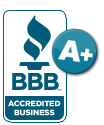The following two questions were asked by John Darer of Structured Settlements 4 Real:
- Can a structured settlement recipient choose to forgo getting Court approval? If so, what are the consequences?
- How does the factoring company "factor in" the 40% excise penalty (set forth in IRC 5891) in the factoring quote to the structured settlement recipient?
The answer to this is quite simple. An annuitant cannot forgo the court approval process in a structured settlement factoring transaction. Here is why:
IRC 5891 states the following:
"There is hereby imposed on any person who acquires directly or indirectly structured settlement payment rights in a structured settlement factoring transaction a tax equal to 40 percent of the factoring discount as determined under subsection (c)(4) with respect to such factoring transaction."
Reason an annuitant cannot sell a structured settlement without court approval:
Internal Revenue Code 5891 can be misunderstood because IRC 5891 is a federal tax provision, under constitutional law the U.S. Government cannot legislate in the area of insurance law. The states legislate in the area of insurance law. The state transfer laws must be adhered to without exception so transfers cannot be completed (it is illegal to do so) without court order. However if the state law is not adhered to, then not only is the transaction illegal, there is a 40% excise tax due under federal law.
If an annuitant could forgo the court approval process in a structured settlement factoring transaction and were to face a 40% excise tax penalty, in some cases the 40% penalty could exceed the purchase price. The reason for this is because the excise tax is on the future value and not on the present value (purchase price).





